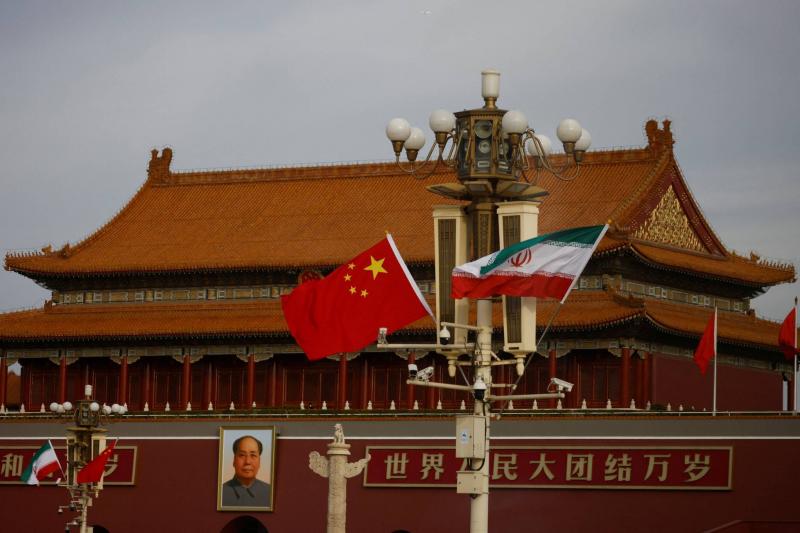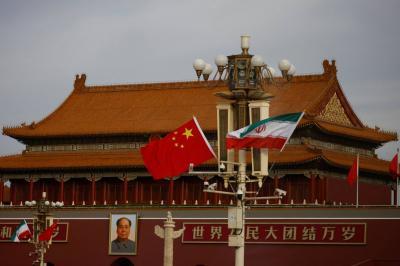Perhaps the most striking among yesterday's comments about the Chinese surprise is "the sun in the Near East rises from the Far East." There is great optimism on both sides of the Gulf. When I inquired to a Gulf diplomat about what awaits us in the coming weeks or months, he laughed and asked, "Didn't I tell you that Mohammed bin Salman will leap over Joe Biden?" Fox News mocked the American president, talking about a "knockout punch." Where? "On the head!"
In his view, "a coup has occurred in the region. The results are coming one after another, in a calm atmosphere." He noted that senior officials in his country “were put in the loop on the third day of the talks." I can assure you that the Saudi and Iranian sides have discussed not only the headlines but have delved into the details, to the extent of shaping a common vision to resolve the crises stemming from or causing the deterioration of relations between the two countries. Should we tell the Lebanese, Syrians, Iraqis, and Yemenis to be optimistic? He replied, "Without a doubt. I contacted my colleagues in Riyadh and noticed they are highly optimistic about putting an end to direct and indirect conflicts, especially after both sides formed the conviction that the escalation of the war in Eastern Europe, in such a dangerous way, could heat up the situation in the region."
The agreements reached in Beijing must close the doors from which fires blow. The French and Germans, who are apprehensive that the war in Ukraine might drag on with its dramatic ramifications for the continent, see that Xi Jinping can play the role of a "golden mediator" between Washington and Moscow, without delving deep into the American position, where the Chinese president is viewed as the main adversary of the United States. This is primarily because he poses a future threat to the current international (non)system, and his call for a multipolar world triggers a stormy reaction from the core pillars of the deep state (empire) who lured Vladimir Putin into the Ukrainian quagmire to break him, solidifying their leadership of the globe.
The scene is quite different in many respects regarding Xi Jinping's administration's mediation between Riyadh and Tehran. The Iranians, with their diplomacy not lacking in sharp ideological touches, trust their "Chinese friend" with whom they have long-term strategic projects. They are in a delicate position and expect increasing American and European pressure on them, so the mediation is not aimed at creating a breach in the wall but rather at paving the way for its demolition.
Furthermore, the Saudis are increasingly leaning towards adopting a principle of balance in their relations with great powers, even though the American military presence in the Gulf is bound to exert pressure on the policies of the Gulf Cooperation Council countries. However, even the American newspapers consider that something has happened in the relations between the White House and the Yamamah Palace. There is a group of advisors around the Saudi crown prince who believe that if the kingdom wants to play a more dynamic role at the geostrategic level, it must have its own playground instead of remaining in the American arena.
Everywhere on the conflict map (Lebanon, Syria, Iraq, and Yemen), crises have come to a deadly stalemate. Neither the Saudis nor the Iranians can move even a single step forward in the arena. Here lies the crisis of crises... For years, it has been said that the resolution starts from the mountains of Murad in Saada and rolls to the shores of the Mediterranean, without it being hidden that the Americans have never stopped pressuring to prevent the cessation of conflicts of such Sisyphean proportions across the region. Thus, through the Chinese gateway, relations can enter, in a state of stability, and efforts can continue to shape a ground for a regional system that limits dependence on empires.
No one denies the importance of Iraqi and Omani efforts, but it has been difficult for them to break through the debris. The dragon does not just penetrate the rubble but also removes it. Let's wait... In Beirut and Damascus, in Baghdad and Sana'a, there is a light at the end of the tunnel, getting closer and closer…




